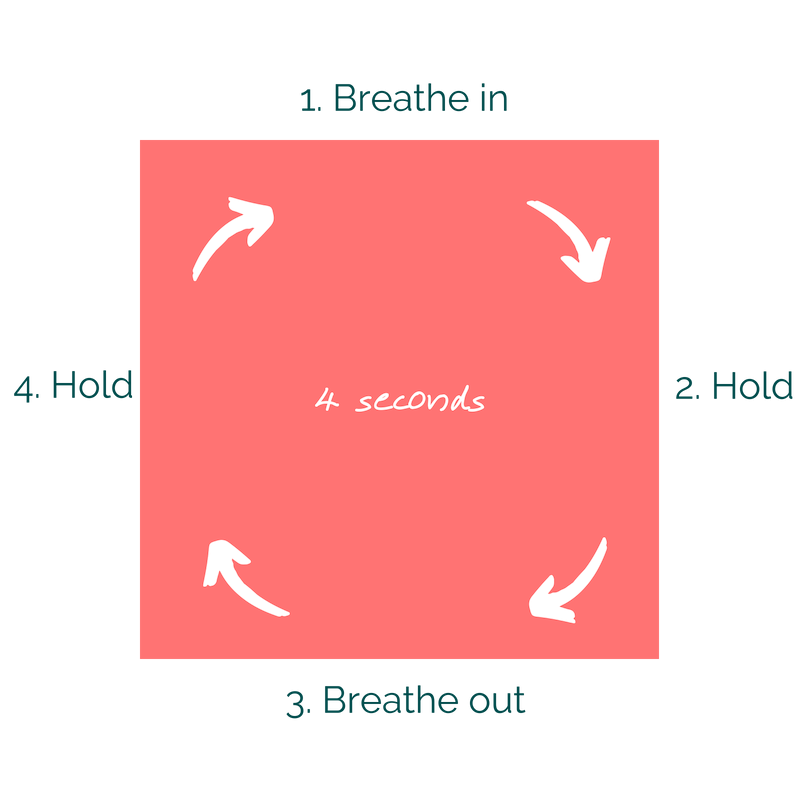Remaining Calm in the Chaos: Practices for Stress, Focus, and Sleep

Meriden McGraw is the co-founder of Quidwell where she works…
“When the crowded Vietnamese refugee boats met with storms or pirates, if everyone panicked all would be lost. But if even one person on the boat remained calm and centered, it was enough. It showed the way for everyone to survive.”
In my other professional life I teach individuals and organizations simple, evidence-based techniques for optimal mental wellbeing. As part of that work, I’m the Director of the Corporate Mindfulness Team at The University of Cincinnati Center for Integrative Health and Wellness.
Over the past three weeks I’ve been on numerous phone calls with corporate leaders from across Cincinnati talking about the wellbeing of their people. On every call I think of the above quote from Zen master Thich Nhat Hanh. If just one of us remains calm it is enough. If just one of us in a family, a friend group, a professional team, a community stays calm it is enough to ripple out to impact the whole.
Minute to minute, day to day, week to week the calm and centered leader might change. But, as long as we can all take a turn being the example, we can all remain calm together. Just one of us is enough.
Our team at the Center put together a resource for businesses that I’m including below with a practice for stress, a practice for focus, and a practice for sleep. I hope you find this tools helpful in your attempts to protect your own mental wellbeing and to remain the calm example. We need every single one of us to take a turn.
During times of uncertainty and change we as individuals and organizations often understand that it is more important than ever to take care of our mental well-being. But often, we are not taught how to do this.
The below mindfulness practices are evidence based, easy, simple and approachable techniques to keep steady and calm in times of uncertainty. Please note, none of these recommended techniques replace medical advice from a professional regarding significant mental health challenges, and if you are experiencing symptoms of mental illness, we encourage you to seek professional care.

Managing Stress
Our brains are hardwired to scan for danger and, so, scenarios like COVID-19 are like stimulants for our brains. While it is common for our brains to be on overdrive during this time, that is not pleasant or productive. Mindfulness can help us calm overactive thoughts by helping to ground us in the present moment. When we are in that present moment we cannot ruminate on the past or worry about the future.
How: Stop. Find Stillness. Use the breath as an anchor to ground you in the present moment. Notice all aspects of the breath. Become aware of what it is like to breathe and all the sensations associated with the breath. Maybe repeat, “inhale, exhale,” as you breathe.
As your mind starts to wander return back to the breath with kindness and compassion. Remember the goal is not to stop the thoughts. It’s simply to notice them and return back to focusing on the breath. The longer you practice, the sooner you will notice your mind is wandering. This creates separation from the thoughts. You do not have to believe every thought you have as truth.
What, Why, When: This practice of breath watching is one formalized mindfulness practice. Consistent mindfulness meditation practice with the breath is shown to increase focus and productivity and decrease stress. Practice when and where you can. If you can’t find the time to sit in stillness, notice the breath while walking.
If you would like to practice with a 60-second guided audio click here.
To Focus During Times of Transition and Change
When we are out of our typical routine it can be drastically harder to focus. To increase focus, try a breath pattern called box breath.
 To practice:
To practice:
- Bring awareness to the inhale and the exhale.
- Take a few natural inhales and exhales.
- Then, inhale through the nose for a count of four seconds.
- Pause for four seconds.
- Exhale through the nose or mouth for four seconds.
- Pause for four seconds.
- Repeat.
You can do this anytime, anywhere for as long as it feels right for you. Perhaps start with a minute and see how you feel.

To Help With Sleep
In times of normalcy, up to 40% of Americans report trouble sleeping due to minds wandering. This may be increased during times of increased stress. If you are experiencing trouble sleeping, try practicing a body scan meditation.
You can find many available body scans and meditations on Insight Timer, a free meditation app. You can search, “body scan,” and a variety of options will appear which you can filter with duration. You may have to try a few to find the voice and wording that works best for you.
If you have questions about these techniques, please reach out here.
Meriden McGraw is the co-founder of Quidwell where she works to optimize the health of women. Outside of Quidwell, Meriden combines her master’s level education in mental and public health with her training in mind-body modalities to teach individuals and groups techniques for optimal wellbeing. Meriden holds various certifications in pranayama (breath techniques), positive psychology, mindfulness, and yoga. On an average day, Meriden can be found practicing yoga, drinking kombucha, dragging her husband to strength training workouts, and taking her pup for a walk.


